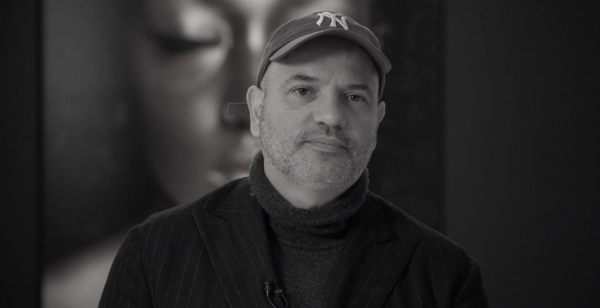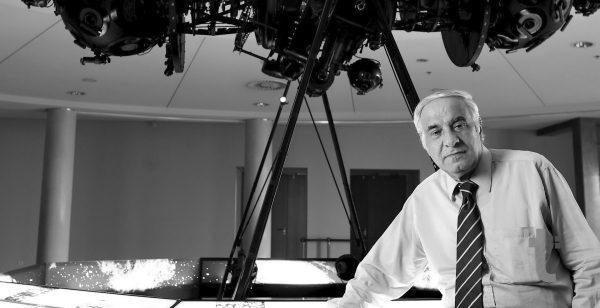The artistic director of the Greek National Opera and internationally renowned Greek composer explains why music is a natural phenomenon, talks about success and rejection, spiritual luxury, the power of nature and tradition, inspiration and the significance of constant pursuit. He describes the creative process and explains why in music there are neither hidden treasures, nor hidden talents, which can’t be discovered...
Travelling the world, guided by music
By Christina Katsantoni
Translated by Alexandros Theodoropoulos
His life journey is inextricably linked to music. As a child, music was for him a personal affair, a game, driven by a natural need, summed up in the phrase "let’s play music, shall we”? Today, music still remains a way of life for the artistic director of the National Opera, actually, identical with his own life. It is not only a means of expression and communication, it is the means to discover the world...
The First Work
He was born and raised in Rethymno, a historical city with special culture and strong bonds with music. His inclination towards music was clear from his childhood. He started with accordion lessons and continued with piano and studies at the Conservatory in Athens.
From his adolescence, already in defiance of the expectations for university studies, he decided that what he wanted to do in his life was to write music. At the age of 16 he began writing his first work, entitled Removal 3. His deep attraction to music overcame any obstacle that arose.
When later, on the recommendation of Nikos Mamagakis, he took it to the Third Program under Manos Hadjidakis, Giorgos Kouroupos considered that it was worth sending it to the International Composers' Forum. This is how a long creative journey in music started, with many manifestations (works of symphonic music, but also compositions for the performing arts), sensitivity, uniqueness and constant search.
Spiritual luxury and the Olympics
In 1992, winning the Prix de Rome scholarship gave him the opportunity to live a unique experience by staying for a year at the French Academy in Rome. There, he had the opportunity to experience a high spiritual luxury in the Medici palace, to see his music played outside Italy, to get in touch with great artists from all fields of art and to chat sometimes with the Taviani brothers and Theodoros Angelopoulos, concerning their work.
In the same year he collaborated for the first time with D. Papaioannou and the Ground Team, in a collaboration that reached the peak in 2004, with the opening and closing ceremonies of the Athens Olympic Games.
The Rebirth in Tinos
The end of the Olympics marked the beginning of a new chapter in his life and creation. A leisure trip of a few days in Tinos became the occasion to buy a house in Ysternia and to spend the next 13 years there, choosing to radically change his life, in order to rediscover himself and his composing skills and qualities.
The natural environment of the area stood generously as a source of inspiration and caused a return to the memories and experiences that composed his musical identity, so everything bloomed. During his stay in Tinos he wrote over 20 works and the chapter closed with a new challenge: the assignment by the Greek National Opera to write an opera.
That opera was "Fonissa" (The Murderess), to which the audience and critics responded with moving enthusiasm. At the same time, he was given the opportunity to get to know the mechanism of the National Opera. In 2015 he took over the responsibility of artistic programming of the Alternative Stage and in February 2017 he undertook the demanding position of the artistic director of the National Opera.
The role of the artistic director
The way in which Giorgos Koumendakis perceives the role of the artistic director, let alone an artistic director with a vision and continuous action - in defiance of the pandemic, presupposes total devotion. So much devotion, that he has currently lost not only his personal life, but also his composing action.
But he doesn’t worry, as he knows that music is always there. His curiosity for music has remained unaffected since his childhood; a time when his journey in life began with the same physical need, which can be summed up in two words: “Lets’ play music, shall we”?











































